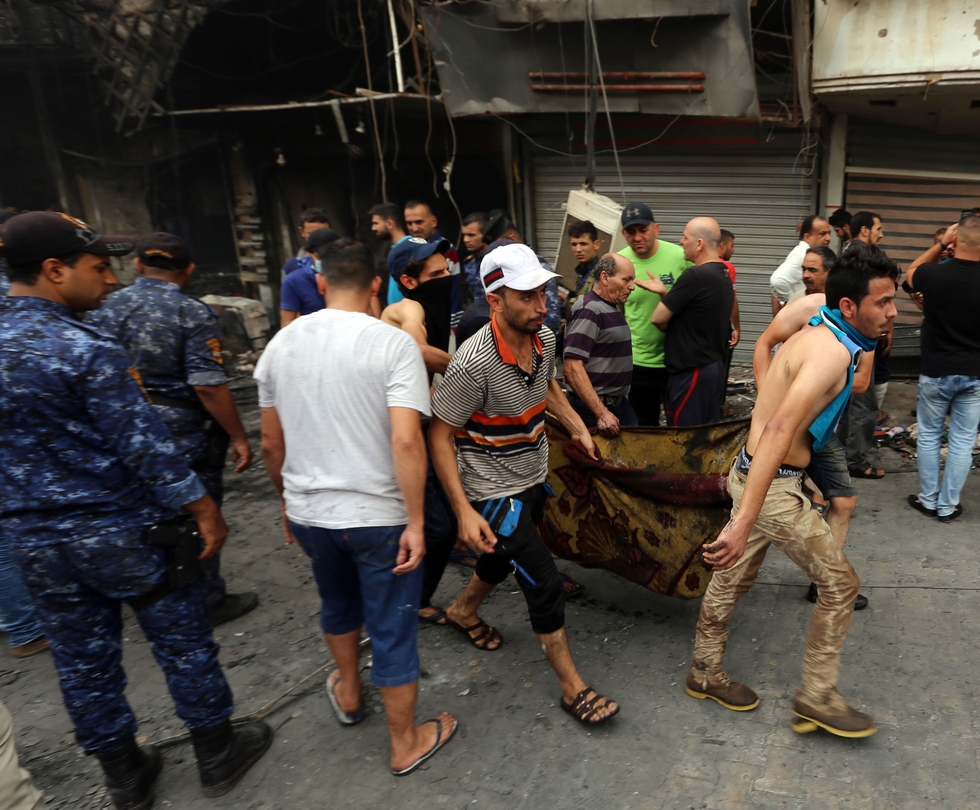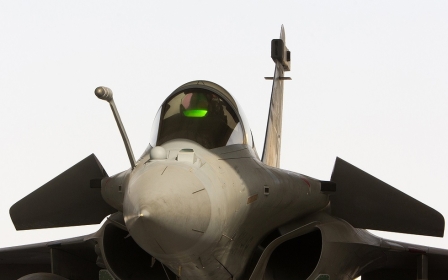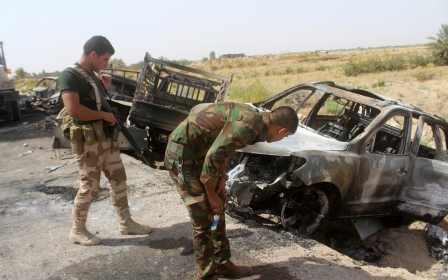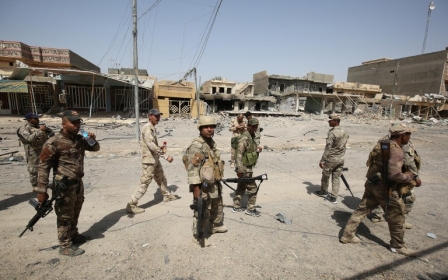IS-claimed Baghdad blast kills over 200 in biggest single attack this year

At least 213 people were killed in Sunday's Baghdad suicide bombing claimed by the Islamic State group, officials said, making it one of the deadliest ever militant attacks in Iraq.
The suicide car bombing, which ripped through a crowded shopping area and sparked infernos in nearby buildings, also wounded more than 200 people, security and medical officials told AFP on Monday.
The blast hit the Karrada district early in the day as the area was packed with shoppers ahead of this week's holiday marking the end of the Muslim fasting month of Ramadan.
The attack came a week after Iraqi security forces recaptured Fallujah from IS, leaving Mosul as the only Iraqi city under IS control.
Prime Minister Haider al-Abadi visited the site of the attack and vowed "punishment" for its perpetrators, his office said.
On Sunday, a video posted on social media showed men - apparently angry at the government's failure to prevent the carnage in Karrada - throwing rocks toward what was said to be Abadi's convoy.
A bystander could be heard cursing at Abadi in another video.
The huge blast set buildings in the area ablaze, and firemen were still working to extinguish them hours later.
Men carried the bodies of two victims out of one burnt building, and a crowd of people looked on from the rubble-filled street as firefighters worked at the site.
Hussein Ali, a 24-year-old former soldier, said six workers at his family's shop were killed in the attack, their bodies burned so badly that they could not be identified.
"I will return to the battlefront. At least there, I know the enemy so I can fight him. But here, I don't know who I'm fighting," Ali told AFP.
IS issued a statement claiming responsibility for the suicide bombing, saying it was carried out by an Iraqi as part of the group's "ongoing security operations".
The militant group said the blast targeted members of Iraq's Shia Muslim majority, whom the Sunni militants consider heretics and frequently attack in Baghdad and elsewhere.
Officials said another explosion in the Shaab area of northern Baghdad killed at least one person and wounded four on Sunday, but the cause of the blast was disputed.
Bombings in the capital have decreased since IS overran large areas north and west of Baghdad in June 2014, with the militants apparently occupied with operations elsewhere.
But the group has struck back against Iraqi civilians after suffering military setbacks.
IS loss in Fallujah
In May, the capital was rocked by a series of blasts that killed more than 150 people in seven days.
With thousands of vehicles moving in and out of the city each day, such bombings are difficult to prevent.
But there are also flaws in Iraqi security measures in the city, especially the continued use of fake bomb detectors at checkpoints in the city years after the man who sold them to Iraq was jailed for fraud in Britain.
Iraqi forces completely recaptured Fallujah, a city 50 kilometres west of Baghdad, from the militants a week ago.
Anti-government fighters seized Fallujah in early 2014 and it later became one of IS's main strongholds in the country.
Iraqi forces launched an operation in May to recapture the city.
The defeat of IS was compounded by a devastating series of air strikes targeting militant forces as they sought to flee the Fallujah area.
Iraqi and US-led coalition aircraft destroyed hundreds of IS vehicles and killed dozens of militants in two days of strikes against convoys following the end of the Fallujah battle, officials said.
With Fallujah retaken, Iraqi forces are now setting their sights on second city Mosul, the last major population centre held by IS in Iraq.
Initial operations aimed at setting the stage for a final assault on the city have begun, and the US-led coalition is carrying out strikes in the area.
The Pentagon announced on Friday that the coalition had killed two senior IS leaders in the Mosul area the previous week.
In addition to Mosul, IS still holds significant territory in Nineveh province, of which Mosul is the capital, as well as areas in Kirkuk to its west and Anbar to its south.
The militant group seized control of large parts of Iraq and Syria in mid-2014, declaring an Islamic "caliphate," committing widespread atrocities and organising or inspiring a series of deadly attacks across the Middle East and in cities in the West.
Middle East Eye propose une couverture et une analyse indépendantes et incomparables du Moyen-Orient, de l’Afrique du Nord et d’autres régions du monde. Pour en savoir plus sur la reprise de ce contenu et les frais qui s’appliquent, veuillez remplir ce formulaire [en anglais]. Pour en savoir plus sur MEE, cliquez ici [en anglais].




